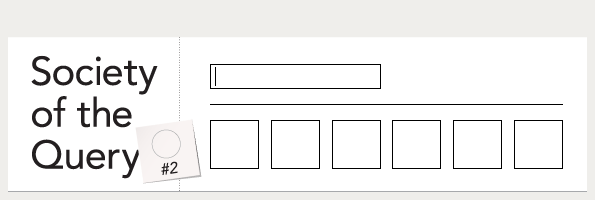Short interview with René König from network cultures on Vimeo.
Erik Borra and René König were the second to last speakers of Society of the Query #2’s sixth and final session, The Filter Bubble Show, with a talk on why search engines are biased. As a case study, Borra and König chose the controversial topic of 9/11 and tried to answer how Google’s algorithm decides what is relevant for this particular query. The reason why chose 9/11 as an object of study is its status as a global phenomenon examined from diverse perspectives, including conspiracy theories of 9/11 Truth Movement variety, which questioned the mainstream version of events featured in the media.
For the past six years, a script made at the Digital Methods Initiative, queried Google daily with the term “9/11” and stored the top 10 search results for each day. The corpus of Borra and König’s study consisted of results chosen from four dates per year, one every few months. The top 10 URLs for the selected days were then coded using an emergent coding scheme: reading through all the pages that the URLs pointed to, noticing content commonalities and constructing the main categories of ‘mainstream’, ‘conspiracy’, ‘meta’, ‘history / facts’, ‘memorial’, ‘aftermath’, ‘popular culture’ and ‘other’.
What they initially observed was that the majority of websites contained alternative accounts of the 9/11 events, mainly conspiracy theories. Over time, categories also tended to shift in a more conservative direction. In addition to this, it would seem that in 2008 many websites focused on dealing with the aftermath of the attacks, but then, in 2011, they became less significant as mainstream sites took over.
Perhaps the most striking finding is that in 2012, conspiracy websites practically disappeared from the results, while the Wikipedia entry on 9/11 and the site of the 9/11 Commission gained prominence. Borra and König tend to attribute this crucial change to the first update of Google’s Panda algorithm, rolled out in early 2011. Google claimed that this update improved rankings for so-called “high quality” websites. This claim begs the question of what constitutes quality, according to Google.
To further explain why websites containing alternative accounts of the 9/11 events could no longer be found in the top 10 results in 2012, Borra and König gave some examples of what the leading search engine considers to be a “high quality” site, including the rather odd criterion of whether visitors could be comfortable with giving their credit card information to the website.
The two scholars concluded that offline knowledge hierarchies are not always mirrored in Google results and that popular perspectives neglected by traditional knowledge authorities can benefit from the algorithmic determination of relevance, manifested through the reception of a large number of links. Ultimately, none of this matters if altering established rankings is one click away. Changing a search engine’s algorithm can clearly impact the hierarchy of knowledge itself.
Society of the Query #2 – Erik Borra and René König: Googling 9/11: The Perspectives of a Search Engine on a Global Event from network cultures on Vimeo.


